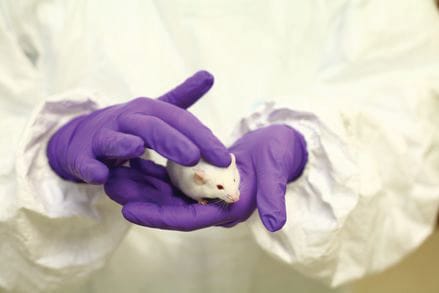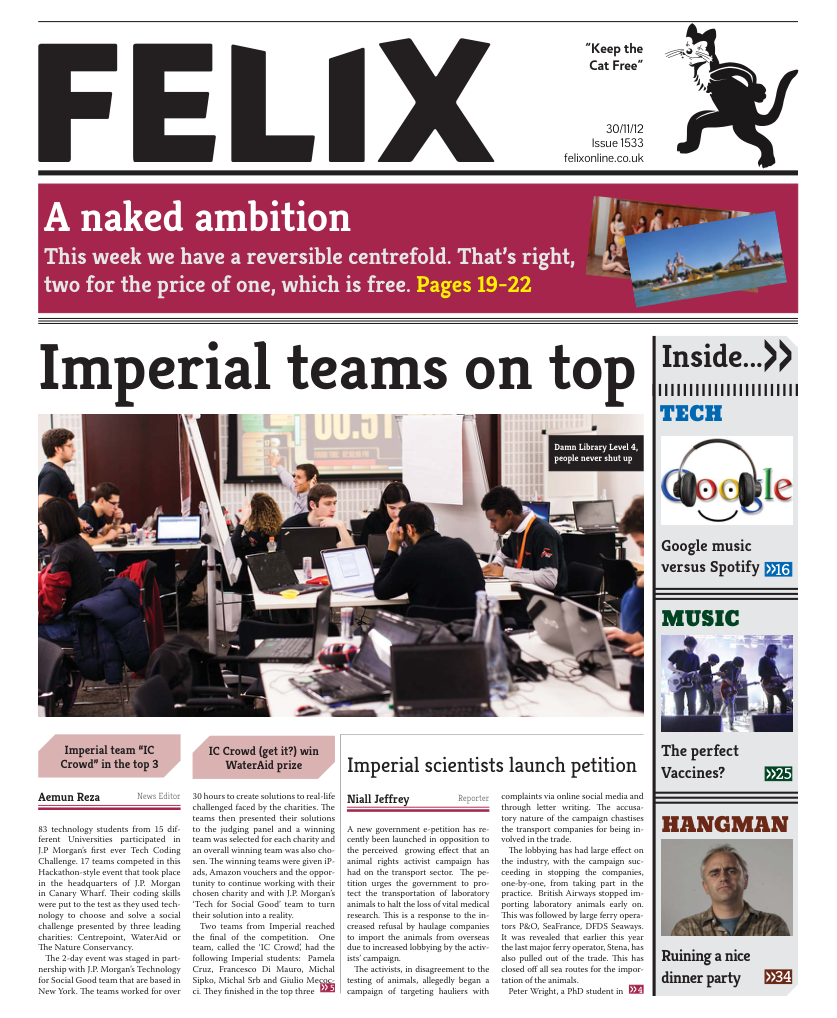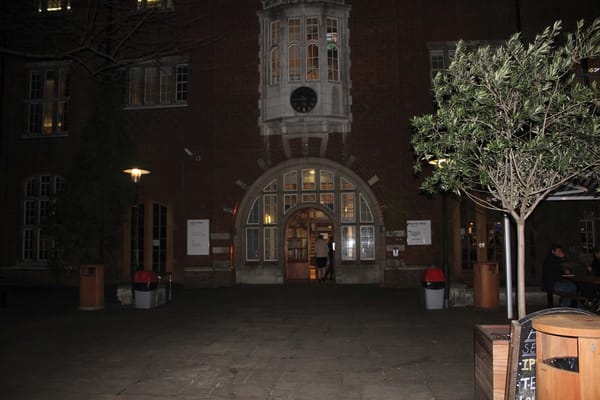Imperial scientists launch petition
Petition for the government to protect imports of research animals.

A new government e-petition has recently been launched in opposition to the perceived growing effect that an animal rights activist campaign has had on the transport sector. The petition urges the government to protect the transportation of laboratory animals to halt the loss of vital medical research. This is a response to the increased refusal by haulage companies to import the animals from overseas due to increased lobbying by the activists’ campaign.
The activists, in disagreement to the testing of animals, allegedly began a campaign of targeting hauliers with complaints via online social media and through letter writing. The accusatory nature of the campaign chastises the transport companies for being involved in the trade.
The lobbying has had large effect on the industry, with the campaign succeeding in stopping the companies, one-by-one, from taking part in the practice. British Airways stopped importing laboratory animals early on. This was followed by large ferry operators P&O, SeaFrance, DFDS Seaways. It was revealed that earlier this year the last major ferryoperator, Stena, has also pulled out of the trade. This has closed off all sea routes for the importation of the animals.
Peter Wright, a PhD student in Functional Microscopy at the Imperial Centre for Experimental and Translational Medicine in the Hammersmith Campus, set up the online petition.
“This [the actions of the hauliers] was in responseto lobbying by the anti-vivisectionist movement. In the UK there is a still a great deal of fear surrounding animal rights extremists. This is largely unfounded now but lobbying by groups such as BUAV (British union of Anti-Vivisectionists) was enough to make the companies think twice,” he told Felix.
“Support for animal research in the UK is still reasonably high (although this has begun to fall). The actions of anti-vivisectionist groups have therefore had the effect of slowing the rate and increasing the costs of UK medical research.”
He hopes the petition will persuade government toconvince hauliers to recommence transporting the required laboratory animals. Aims also include having the government provide better “encouragement, advice and protection” to the companies in question.
Recently, only 1% of the animals used in laboratory experiments were imported from outside the UK, however this small fraction is essential in research. The 1% from abroad comes from specialist breeding facilities, generally found in Europe.
Knowledge of the animals’ specific strain is essential in many areas of research and often only certain strains, such as genetically engineered mice, are required for experiment. Researchers claim that if they unable to get the required animals the UK will be unable to stay at the forefront of biomedical research and, in the long term, new medical expertise will be damaged and patients will suffer.
Genetically modified mice, for example, are useful in drugs testing and understanding the mechanics of illness. A large proportion of research being damaged includes that into cancer and Alzheimers. Former Science Minister (2008-2010), Lord Drayson has said, “By giving in to the protesters they [the hauliers] are inadvertently choking off vital research into some of the most debilitating diseases affecting our society.”
The campaign for resumption of animal transportation is currently being supported by Understanding Animal Research, Speaking of Research and academics from numerous institutions, including the Royal Veterinary College. More explicit support from the institutions themselves is expected in the very near future.









